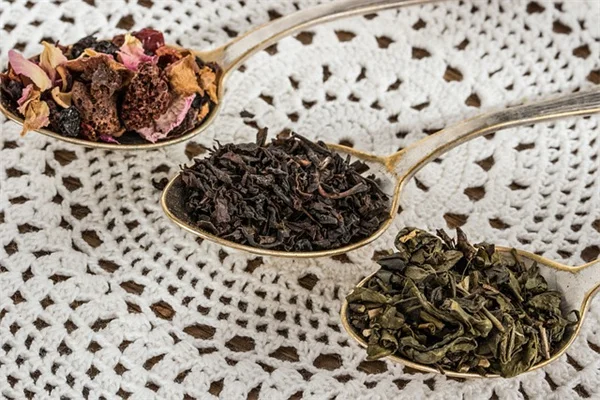What is the new chikungunya vaccine approved by the FDA? The answer is simple: Ixchiq, developed by Valneva, is the first and only vaccine to prevent chikungunya virus infections. This breakthrough is especially important if you're planning trips to tropical regions like South America, Africa, or Southeast Asia where this mosquito-borne disease is common.Here's why we're excited: this vaccine could be a game-changer for travelers and lab workers. While chikungunya rarely kills, it can leave you with severe joint pain and fever for weeks. The good news? You now have an extra layer of protection beyond just bug spray and long sleeves.But before you rush to get vaccinated, understand this isn't for everyone. As Dr. Brian Labus explains, This is specifically for people heading into outbreak areas - not your average stay-at-home American. We'll break down everything you need to know about this innovative vaccine and whether it's right for your travel plans.
E.g. :GLP-1 Weight-Loss Drugs: New Study Shows 41% Lower Cancer Risk
Advertisement
- 1、Meet the New Chikungunya Vaccine - Your Tropical Travel Buddy
- 2、Who Really Needs This Vaccine?
- 3、How Dangerous Is Chikungunya Really?
- 4、The Science Behind Ixchiq
- 5、Practical Protection Tips
- 6、Final Thoughts Before You Go
- 7、Beyond the Basics: What You Haven't Heard About Chikungunya
- 8、The Vaccine Rollout Challenges
- 9、Future Frontiers in Mosquito Control
- 10、Personal Protection Goes High-Tech
- 11、The Climate Change Connection
- 12、Travel Smart in the New Normal
- 13、FAQs
Meet the New Chikungunya Vaccine - Your Tropical Travel Buddy
Why This Vaccine Approval Matters
Guess what? The FDA just gave the green light to Ixchiq, the first-ever vaccine against chikungunya virus! This is huge news because:
Did you know that climate change is helping tropical diseases spread further north? That's right - those pesky mosquitoes carrying viruses like chikungunya are expanding their vacation spots beyond traditional tropical areas.
Chikungunya 101: The Basics
Let me break it down for you. Chikungunya is:
- A mosquito-borne virus first discovered in the 1950s
- Common in tropical regions like South America, Africa, and Southeast Asia
- Causes fever, joint pain (sometimes severe), and fatigue
The symptoms can last for weeks or even months. Imagine having the flu plus arthritis at the same time - not exactly my idea of a good time!
Who Really Needs This Vaccine?
 Photos provided by pixabay
Photos provided by pixabay
Not Your Everyday Shot
Here's the deal - this isn't a vaccine for everyone. Ixchiq is specifically designed for:
| Who Should Get It | Who Can Probably Skip It |
|---|---|
| Travelers to outbreak areas | People staying in the U.S. |
| Lab workers handling the virus | General U.S. population |
Dr. Brian Labus from UNLV puts it perfectly: "This isn't something we're telling everyone to run out and get. It's for people heading into high-risk zones."
Current Hotspots to Watch
Right now, these places are seeing the most action:
- Brazil
- Paraguay
- Argentina
- Bolivia
But here's a pro tip: Always check the CDC's travel health site before your trip. Outbreaks can pop up in new areas unexpectedly!
How Dangerous Is Chikungunya Really?
The Good News First
Let me ease your mind - chikungunya rarely kills people. The symptoms can be miserable, but most folks recover fully.
In the U.S., we've only seen local transmission twice (2014 and 2015). Since then, cases have mostly been from travelers - about 1,757 between 2015-2022.
 Photos provided by pixabay
Photos provided by pixabay
Not Your Everyday Shot
Climate change is shaking things up. As temperatures rise, those disease-carrying mosquitoes might start feeling at home in places like:
- South Florida
- Puerto Rico
- Other southern states
Dr. William Schaffner from Vanderbilt University explains: "Having this vaccine ready means we're prepared if chikungunya starts spreading here." Smart thinking, right?
The Science Behind Ixchiq
How This Vaccine Works Its Magic
Ixchiq is what we call a live-attenuated vaccine. Fancy term, simple concept:
- Scientists take the real virus
- Weaken it so it can't cause full infection
- Your immune system learns to fight it
The best part? Your body remembers how to fight chikungunya if you encounter the real deal later. Pretty cool, huh?
Why Testing Was Tricky
Here's something interesting - chikungunya outbreaks are unpredictable. So how did scientists test the vaccine?
They used immune response data instead of waiting for outbreaks. This approach has worked for other rare diseases too, like meningococcal disease.
Ever wonder why we can't just test vaccines the old-fashioned way sometimes? It's because some diseases don't follow predictable patterns like the flu. You can't schedule an outbreak for clinical trial convenience!
Practical Protection Tips
 Photos provided by pixabay
Photos provided by pixabay
Not Your Everyday Shot
Even if you get vaccinated, don't forget these basic protections:
- Use EPA-registered insect repellent
- Wear long sleeves and pants
- Stay in places with air conditioning or window screens
Remember, mosquitoes are most active at dawn and dusk. Maybe plan your outdoor activities for other times!
The Cost Factor
Let's talk money - Ixchiq will likely cost around $350. Ouch! Since most insurance won't cover travel vaccines, this could be an out-of-pocket expense.
But think of it this way: That's probably less than changing your travel plans last minute if an outbreak hits!
Final Thoughts Before You Go
Making Smart Travel Decisions
Here's my advice: Don't just look at past outbreak locations. Check current reports before your trip. The CDC's travel health site is your best friend here.
And if you're heading to an active outbreak area? The vaccine could be worth every penny. Nobody wants to spend their vacation in bed with fever and joint pain!
The Bigger Picture
This vaccine approval isn't just about today - it's about being ready for tomorrow. With climate change altering disease patterns, having tools like Ixchiq available puts us one step ahead.
So whether you're a frequent traveler or just curious about public health, this is exciting progress. Stay safe out there, and don't forget your bug spray!
Beyond the Basics: What You Haven't Heard About Chikungunya
The Hidden Economic Impact
Let's talk about something most articles skip - the real cost of chikungunya isn't just medical bills. When outbreaks hit, they can:
Shut down entire tourism industries for months. Remember how Zika scared away visitors from Brazil's 2016 Olympics? Chikungunya could do the same. Local businesses suffer when travelers cancel trips, and workers can't show up because they're sick.
Mosquitoes Aren't the Only Culprits
Here's a twist - did you know monkeys play a big role in spreading chikungunya? In tropical forests, the virus circulates between mosquitoes and primates. When infected monkeys wander near human settlements, mosquitoes can pick up the virus and pass it to people.
This means deforestation actually increases outbreak risks. Fewer trees = more human-monkey encounters = higher disease transmission. Nature's balance is more delicate than we think!
The Vaccine Rollout Challenges
Distribution Dilemmas
Getting Ixchiq to where it's needed most won't be easy. Many outbreak areas have:
| Challenge | Real-World Example |
|---|---|
| Limited refrigeration | Rural clinics in Paraguay often lack reliable electricity |
| Short shelf life | Some vaccines expire before reaching remote islands |
Manufacturers will need to get creative with storage solutions. Maybe solar-powered coolers or single-dose vials could help!
The Education Gap
You'd be surprised how many people in at-risk areas don't understand vaccines. In some communities, rumors spread faster than diseases. We'll need massive public education campaigns to explain:
Why this new vaccine is safe, how it differs from other shots, and who should get it first. Local leaders and healthcare workers will be crucial in building trust. After all, what good is a vaccine if people are too scared to take it?
Future Frontiers in Mosquito Control
Genetic Engineering Breakthroughs
Scientists are testing some wild new approaches to stop disease-carrying mosquitoes:
One company releases genetically modified male mosquitoes that produce offspring which can't survive to adulthood. Another uses bacteria called Wolbachia to block virus transmission. These methods could complement vaccines by reducing mosquito populations.
Community Power Against Outbreaks
Here's an inspiring story - in Singapore, residents formed "mozzie watcher" teams to eliminate standing water where mosquitoes breed. Simple actions like:
- Checking flower pots weekly
- Covering water storage containers
- Reporting neglected swimming pools
Reduced dengue cases by 50% in some neighborhoods. Sometimes the best solutions don't come from labs, but from people working together!
Personal Protection Goes High-Tech
Wearable Repellent Devices
Forget clunky spray bottles - new gadgets like mosquito-repelling wristbands and clip-ons use:
Controlled release technology to create personal protection zones. Some even sync with smartphone apps to remind you when to recharge them. Perfect for travelers who hate sticky sprays!
Smart Clothing Innovations
Imagine your clothes protecting you! Researchers are developing fabrics with:
- Built-in repellent microcapsules
- UV-protective coatings that also deter insects
- Self-cleaning properties to reduce odors that attract mosquitoes
These could be game-changers for outdoor workers and travelers in tropical areas. No more sweating through multiple layers!
The Climate Change Connection
Shifting Disease Maps
Here's something to think about - by 2050, nearly 1 billion more people could face exposure to mosquito-borne diseases due to:
Warmer temperatures allowing mosquitoes to survive winters, and increased rainfall creating more breeding sites. Cities like Houston and Atlanta might become new hotspots. Our public health strategies need to evolve as fast as our climate changes!
Urban Planning Solutions
Forward-thinking cities are redesigning infrastructure to combat mosquito threats:
Singapore's buildings have angled gutters to prevent water accumulation. Rotterdam uses "water squares" that store stormwater while remaining dry most of the time. Even simple changes like proper drainage can make neighborhoods less mosquito-friendly.
Travel Smart in the New Normal
Pre-Trip Health Prep Checklist
Before your next tropical getaway, add these often-forgotten steps:
- Check hotel reviews for mentions of mosquito problems
- Pack a portable mosquito net (some fold up smaller than a soda can!)
- Download local health alert apps
It takes 10 minutes but could save you weeks of misery. Why risk ruining your dream vacation? A little preparation goes a long way when it comes to tropical diseases.
Post-Trip Awareness
Here's what most travelers don't realize - symptoms can appear up to 12 days after exposure. If you develop fever after returning home:
Tell your doctor about your recent travels immediately. Many physicians in non-tropical areas aren't familiar with chikungunya. Your travel history could be the clue that leads to proper diagnosis and treatment.
E.g. :FDA Approves First Vaccine to Prevent Disease Caused by ...
FAQs
Q: Who should get the chikungunya vaccine?
A: The chikungunya vaccine is specifically recommended for two groups of people. First, travelers visiting areas with active outbreaks - currently including parts of Brazil, Paraguay, Argentina, and Bolivia. Second, laboratory workers who might handle the virus. If you're staying in the U.S. where local transmission is extremely rare, you probably don't need it. Always check the CDC's travel health advisories before your trip, as outbreak locations can change quickly. Remember, this isn't a routine vaccination like your flu shot - it's targeted protection for high-risk situations.
Q: How effective is the new chikungunya vaccine?
A: Ixchiq has shown strong immune response in clinical trials, which is how the FDA determined its effectiveness. As a live-attenuated vaccine, it works by introducing a weakened version of the virus to train your immune system. While we don't have long-term data yet (it's brand new!), similar vaccines typically provide protection for several years. The key thing to understand is that this vaccine was approved through special FDA pathways because chikungunya outbreaks are unpredictable - we couldn't wait for traditional large-scale trials. The science behind this approach has worked well for other rare diseases too.
Q: What are the side effects of the chikungunya vaccine?
A: Like most vaccines, you might experience some mild reactions. The most common side effects reported include headache, fatigue, muscle pain, and mild fever - basically, your immune system doing its job. These typically last just a day or two. Since it's a live vaccine, there's a small chance (about 1.6% in trials) of getting mild chikungunya-like symptoms. But here's the important part: these temporary discomforts are much milder than actually getting chikungunya, which can cause debilitating joint pain lasting months. The FDA has determined the benefits outweigh the risks for travelers to outbreak areas.
Q: How much does the chikungunya vaccine cost and is it covered by insurance?
A: Get ready for this - the chikungunya vaccine costs around $350 out of pocket. Unfortunately, most standard health insurance plans won't cover travel vaccines like this one. Here's our advice: if you're planning travel to an outbreak area, budget for this expense along with your other trip costs. Some specialized travel health insurance might offer partial coverage, so it's worth checking. While the price tag might sting, compare it to the cost of canceling a trip last minute or dealing with medical bills abroad if you get sick. For frequent travelers to high-risk areas, this could be money well spent.
Q: Should I worry about chikungunya in the United States?
A: Right now, the risk in the U.S. is very low - we've only seen local transmission twice (in 2014 and 2015). But here's what has public health experts concerned: climate change might change that. As temperatures rise, the mosquitoes that carry chikungunya could expand their range into southern states like Florida. That's why having this vaccine "on the shelf" is so important - we're preparing for potential future threats. For now though, unless you're traveling to outbreak areas or working with the virus in a lab, you probably don't need to lose sleep over chikungunya at home. Just keep using mosquito protection during summer months!


